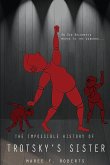While the mothers in Siberia wait for their soldier sons to return from the war in the west in 1945, the eight year old Eduard secretly jumps on board the trains heading in the opposite direction, heading west, towards Leningrad. Placed in a Siberian orphanage as a child because his parents were arrested as public enemies, there is only one thing he wants: to go back home to Leningrad and to find his mother again. It is not only his desperate courage and his youthful agility that ensure his survival, it is also his artistic talent. With his agile fingers the boy is able to bend wire in the shape of profiles of Lenin and Stalin, as if in silhouette. He uses them to cheer up the invalid war veterans on the train stations returning from the front, who then give him a piece of bread, a bowl of soup and who, in a spirit of comradeship, warn him of the railway police and the secret service henchmen wanting to send the runaway back to the orphanage.Eduard spends more than six years on the run, experiencing close encounters with post-war Russia where life and fate have become synonyms. He encounters other stowaways, professional beggars, soldiers returning from the war and wartime profiteers, the mothers of soldiers and war invalids, Chinese from the Ural, Cossacks dealing in hashish, Bashkir Estonians, Russian penal colony escapees and, time and again, orphanage directors. In order to survive the winter he often registered himself voluntarily in the next orphanage, each one always a little closer to the West, running away again before the servants of the Stalinist state are able to send him back to Siberia.The memoirs of an old man who, as a boy, learnt to find his way between extortionate state control and marauding banditry, the two poles that characterize Russia to this day. A story about the awakening of artistic talent under highly unusual Russian circumstances.
Hinweis: Dieser Artikel kann nur an eine deutsche Lieferadresse ausgeliefert werden.
Hinweis: Dieser Artikel kann nur an eine deutsche Lieferadresse ausgeliefert werden.








